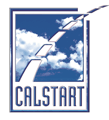CALSTART Supports Direction of House Climate Committee Report
Urges Targeted Action This Year to Support Economic Recovery and U.S. Competitiveness, Select Committee’s Recommendations Supports Group’s Proposals
For More Information Contact:
Katharine Burnham
kburnham@calstart.org
626-344-6863
The Select Committee on the Climate Crisis, under Chair Kathy Castor’s (D-FL) leadership, set forth an aggressive agenda to accelerate the transition to clean transportation and expand the manufacturing of clean cars, buses and trucks here in the U.S. By addressing transportation as the largest emitter of harmful pollutants, the Committee focuses on solutions to reach climate goals and improve the health of communities most impacted by freight-related emissions. CALSTART urges Congress to consider four main policies and proposed principles that will help create jobs and revitalize our hard-hit economy:
- Fix the EV tax credit to give consumers no-emission car choices and stimulate EV sales.
- Create a federal zero-emission (ZE) truck incentive to deploy clean trucks quickly.
- Support a fourfold increase in deployment of ZE buses (ZEBs).
- Build-out clean fuel infrastructure for ZE and near-ZE trucks along interstates.
“We are pleased to see proven programs like incentives and vouchers included in the Committee’s report,” said CALSTART CEO John Boesel. “What has worked on the state level in California and New York, could be adopted nation-wide to accelerate the adoption of clean transportation technologies and vehicles. The Committee’s inclusion of this mechanism signals its seriousness about making investments in clean transportation technologies that can boost U.S. manufacturers and workers now and make us more globally competitive in the clean transportation sector.”
The Select Committee specifically calls on Congress to pass legislation creating federal purchase incentives, such as voucher programs, to support the adoption of zero-emission trucks (ZETs). CALSTART’s National ZET Coalition , a group of over 30 medium- and heavy-duty vehicle (MHDV) OEMs, suppliers, and industry stakeholders, has called for a +$2B federal point-of-sale voucher program to spur production of ZETs over the next five years. CALSTART looks forward to working with the Select Committee and Congress to help advance this legislative priority.
The report also calls on Congress to invest in research, development, and demonstration (RD&D) for zero-emission commercial trucks, transportation electrification grants through the Department of Energy, as well as programs that drive MHDV manufacturing competitiveness. These goals are consistent with the ZET Coalition’s ambitions to drive innovation and manufacturing process improvements for the next generation of zero-emission trucks.
The Select Committee calls on Congress to increase the Federal Transit Agency’s Low-No Grant Program incentivizing clean transit buses by at least tenfold and promotes innovative modes of transit and mobility. CALSTART’s Zero-Emission Bus (ZEB) & Innovative Mobility Coalition has called for robust federal investments in this program to address oversubscription and to incentivize greater clean bus production. The Coalition has also called for robust investment in bus transit and innovative mobility competitive RD&D to integrate new technologies and new transit modes into transit fleets and operations. This innovation will be crucial in a post-COVID-19 transit reality to protect transit bus operators and riders, keep the U.S. at the forefront of zero- and low-emission transit technologies, and to address emissions from these vehicles.
The report emphasizes investment in alternative fuel infrastructure, calling on Congress to create a grant program within the Federal Highway Administration for states and local entities to deploy electric vehicle charging infrastructure along highway corridors. CALSTART’s Clean Corridors Campaign Coalition has recommended a fuel neutral approach to federal investment in alternative fuel infrastructure, including electric vehicle charging as well as hydrogen and natural gas refueling infrastructure, along designated alternative fuel federal highway corridors. The Coalition has also emphasized alternative refueling needs for commercial vehicles along these routes given their outsized impact on emissions, and has advocated for stakeholder engagement in administration of the grant to quickly and effectively administer taxpayer funds for these infrastructure investments.
Finally, the report also advocates for addressing the limitations of the current “30D” light-duty electric vehicle tax credit. CALSTART welcomes this recommendation as a near-term opportunity to incentivize zero-emission vehicle production in the U.S., and has previously urged Congress to raise the per-manufacturer cap on the electric vehicle tax credit to support the domestic production and deployment of these vehicles.
